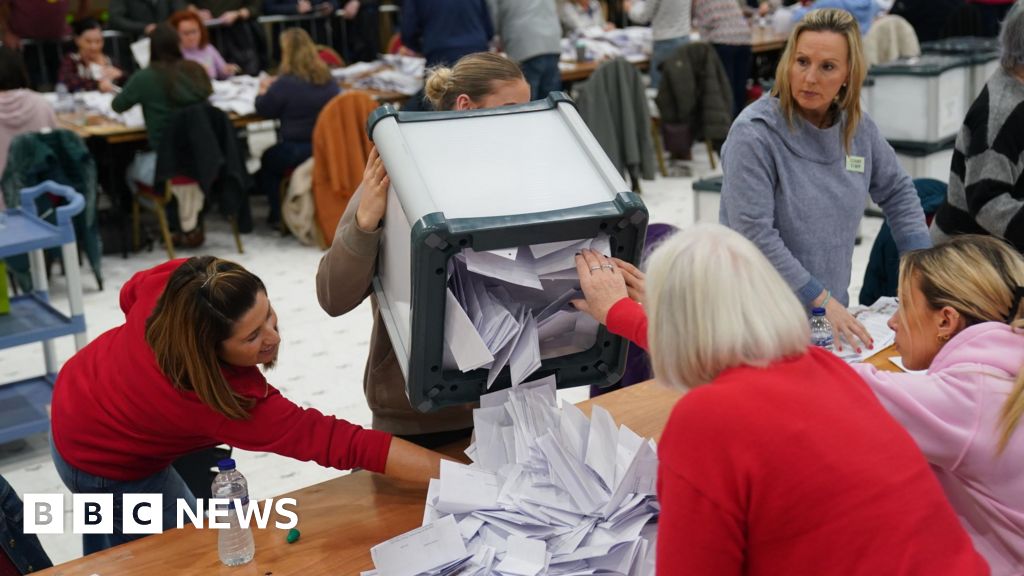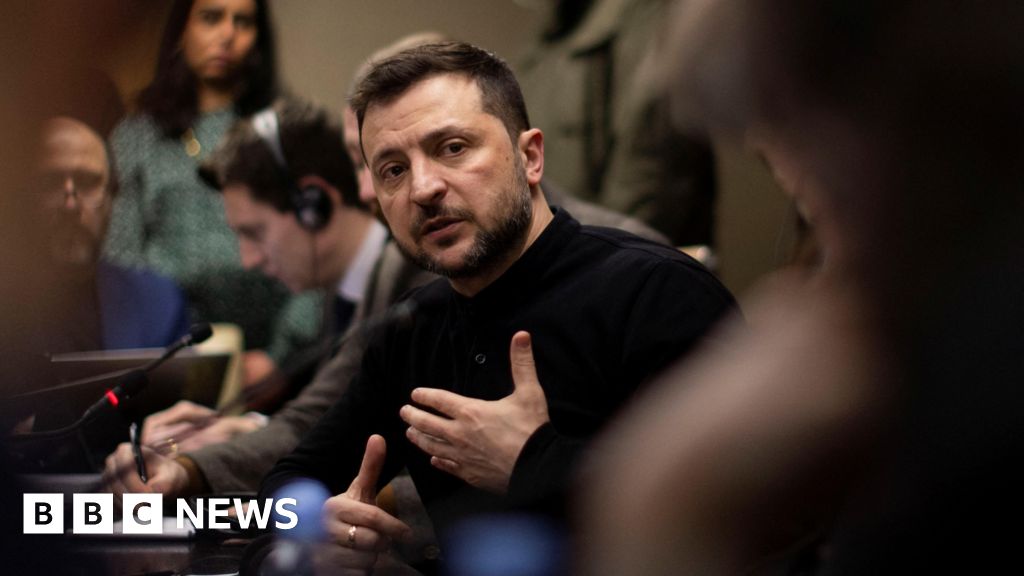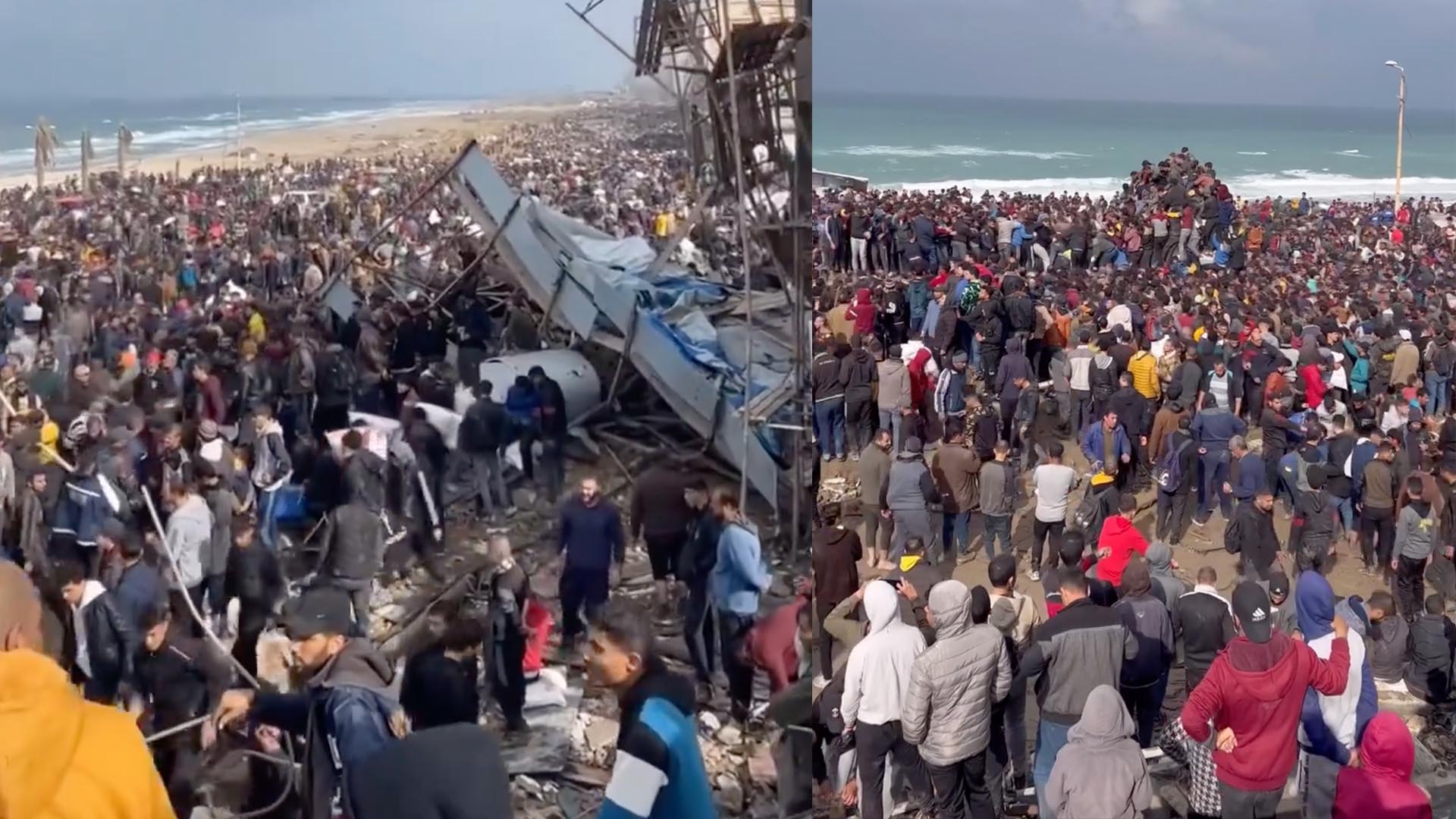Counting resumes in Irish general election
 PA Media
PA MediaThe leaders of the three main Irish political parties have all been re-elected to serve in the Dáil (Irish parliament).
So far, 41 of the Dáil’s 174 seats have been filled, with counting resuming on Sunday morning.
Micheál Martin of Fianna Fáil, Simon Harris of Fine Gael, and the Sinn Féin leader Mary Lou McDonald have overcome their first obstacles in the Irish general election.
Now, they all face an even bigger challenge – to try to form the next government.
Fianna Fáil and Fine Gael have served together in the outgoing government, and after the first day of counting votes, they seem well placed to return to government.
If they agree to do so, they may need the support of one of the smaller parties or a number of the many independent TDs who are expected to be elected as the counting of votes continues on Sunday.
Sinn Féin says it also wants to be in the next government, and the party is ready to speak to other parties and independents.
But, based on current predictions, the scale of the challenge facing Sinn Féin is enormous.
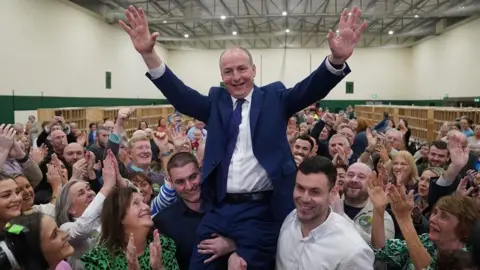 PA Media
PA MediaPolitical pundits are currently predicting that Fianna Fáil and Fine Gael could secure a combined total of more than 80 seats – within touching distance of the golden figure of 88 TDs needed to secure a majority in the Dáil.
The same pundits believe Sinn Féin could secure around 40 seats.
But even if it achieves that, it will still be well short of what is required for a Dáil majority.
In that case, Sinn Féin would have to look towards the smaller parties and independents.
However the smaller parties are expected to be in single figures when all their TDs are finally confirmed.
If it turns to independents, it will find a very disparate cohort of TDs.
To find common cause in such a situation will be another big challenge for the party.
To compound matters, Fianna Fáil and Fine Gael have insisted that they are not interested in sharing power with Sinn Féin because of fundamental policy differences on a range of issues.
Exit poll reversal
Analysis – BBC News NI political editor Enda McClafferty
The race to government has yet to reach the half way point but the final result is starting to take shape.
Fianna Fáil is on course to finish as the largest party, with Fine Gael favourite to fill the runners up spot just ahead of Sinn Féin.
As it stands, with just two of the 43 first counts to be completed, Fianna Fáil has a vote share of 21.6%, Fine Gael has 20.7% and Sinn Féin has 18.7%.
If that order remains after the final count, it will reverse the exit poll prediction which had Sinn Féin in front and Fianna Fáil in third.
Although more than two thirds of seats have yet to be filled Fianna Fáil and Fine Gael look set to return to the government benches.
If they end up with a combined total of 80 plus seats, they may look to the Labour Party or independent TDs to shore up the government.
Sinn Féin is still talking up the prospect of leading a left-leaning coalition but it will struggle to get the numbers needed on current predictions.
Despite what Mary Lou McDonald described as an “incredible” performance by her party she could find herself back on the opposition benches.
‘Sensational political masterclass’
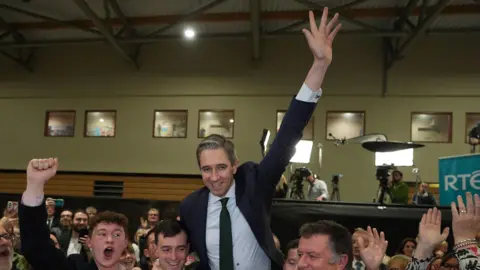 PA Media
PA MediaThis all means that Sinn Féin may have to engineer a sensational political masterclass if it is to enter government in the Republic of Ireland for the first time.
The one thing Sinn Féin and all the parties will have is time.
There is a widespread belief that negotiations to form a new government may go beyond Christmas and into the new year.
On Saturday, party leaders Mary Lou McDonald and Michelle O’Neill were jubilant when they joined their Sinn Féin supporters at the RDS in Dublin.
They were clearly extremely satisfied with the number of seats Sinn Féin is expected to win.
As things stand, very few political commentators are expecting the Sinn Féin jubilation to be sustained to the other side of the negotiations for government.
Check out our Latest News and Follow us at Facebook
Original Source

